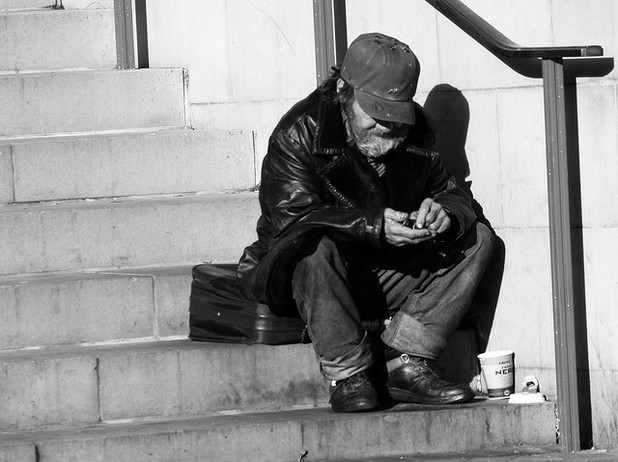- Story Highlights
-
- Cheap Booze: Canadian researchers say that alcohol is too cheap and that in BC, a standard drink can be bought for only 58 cents. They recommend hiking prices, but then offering free alcohol to those in desperate need, such as homeless alcoholics.
Canadian Researchers Say Booze Is Too Cheap, but Homeless Alcoholics Should Get Free Alcohol
Comments (1)Researchers at The University of Victoria’s Centre for Addictions Research say that alcohol is way too cheap in British Columbia. They recommend tripling the minimum cost and recommend giving free alcohol to homeless alcoholics, so that after a price hike, they won’t have to resort to drinking mouthwash or anti freeze or other non beverage types of alcohol.
In B.C., you can get a standard drink at a provincial liquor store for $0.58 (Canadian dollars). Tim Stockwell at The University of Victoria’s Centre for Addictions Research says that’s way too cheap and recommends that government raise the minimum price per drink to $1.50.
He and his team compared the prices at 150 private beer and liquor stores in the province to come up with average prices, and to compare the cost of getting drunk with getting buzzed on other substances, he also interviewed 1600 hard core drug users to learn average costs ‘per high’ for 6 types of illicit drugs.
He found that for people seeking a cheap high – nothing compares to alcohol for intoxicating value, saying, “What stands out is alcohol is incredibly cheap at the bottom end…If you want to go cheap and get a big bang for your buck, it's 58 cents to get a strong beer available in a private liquor store in B.C. Allowing very cheap alcohol to be available is not the best thing for public health and safety and we've certainly fallen behind inflation and other provinces like Ontario and Saskatchewan in how we manage that alcohol supply."
When alcohol prices go up, says Stockwell, overall drinking goes down, as to alcohol caused hospital visits, alcohol related traffic accidents, crime, sexually transmitted diseases and a host of other repercussions of excessive drinking. He adds that 2 groups of price sensitive consumers tend to be 2 groups that are at greater risk of problems – young drinkers and heavy drinkers.
Although raising drink prices makes sense as a public health and safety measure, the researchers acknowledge that for some consumers, notably homeless alcoholics, price increases can lead to destructive measures like the consumption of non beverage types of alcohol, such as anti freeze. Because of this, Stockwell recommends giving free alcohol in a controlled manner to certain alcoholics in real need.
He says that programs in Ontario, which provide small amounts of alcohol every few hours to homeless alcoholics have had ‘spectacular results” in reducing overall alcohol consumption, reducing health effects and reducing crime and police involvement, and argues, “I know people think this is crazy, spending taxpayers money giving alcohol to this population, but we do it for methadone, for heroin addicts, why not for alcohol addicts?"


